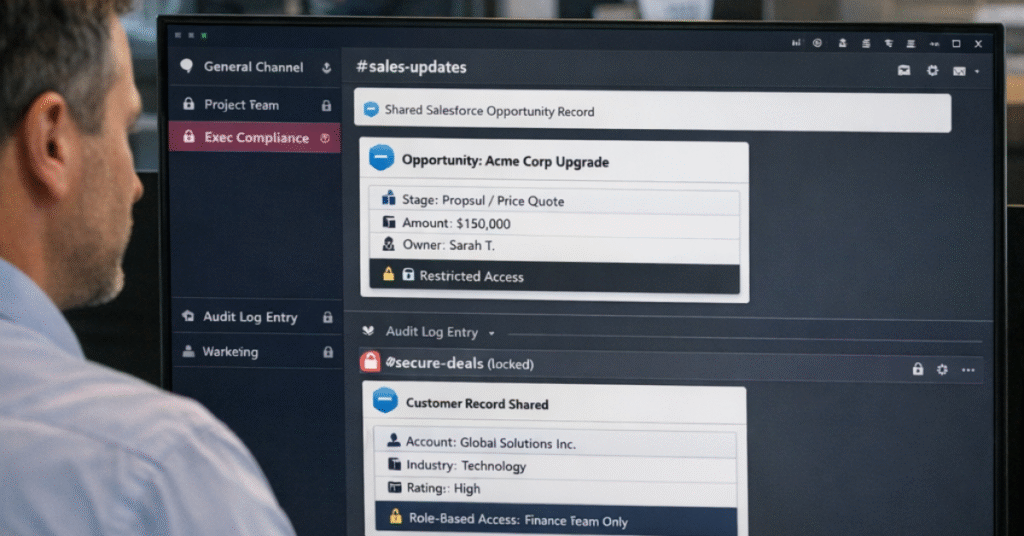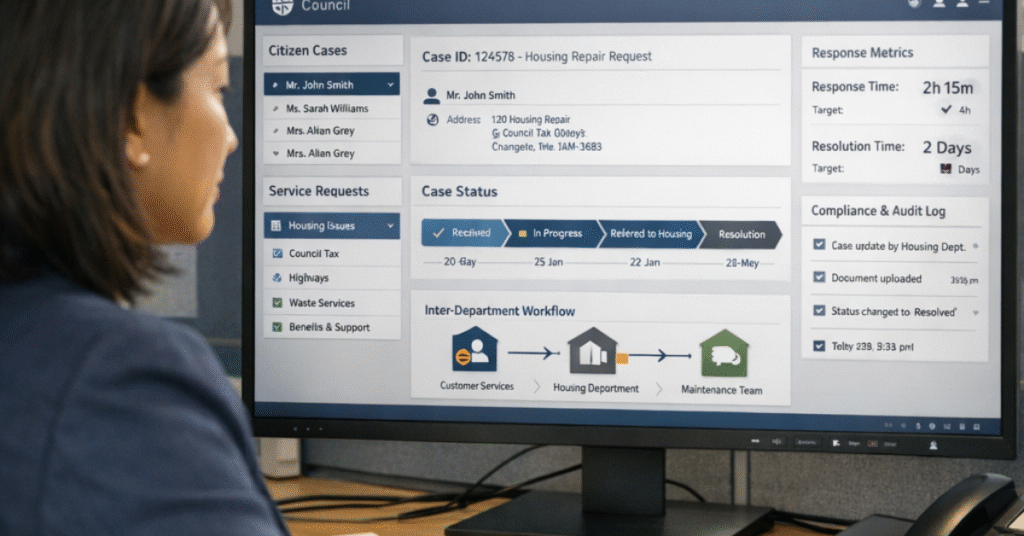
Are you struggling to choose between Salesforce’s two most popular platforms? You’re not alone. With over 150,000 companies worldwide using Salesforce, the decision between Sales Cloud and Service Cloud can significantly impact your business operations and customer relationships. Understanding the key differences between these platforms is crucial for UK businesses looking to maximize their CRM investment and drive sustainable growth.
Salesforce Sales Cloud is designed as a comprehensive sales management platform that transforms how your sales teams operate. While primarily focused on sales reps and sales managers, it works seamlessly alongside Salesforce Marketing Cloud services to provide a unified approach to account acquisition, managing the sales funnel, and closing deals.
Lead Management and Conversion Sales Cloud excels at capturing leads from multiple sources, scoring them based on predefined criteria, and routing them to the appropriate sales representatives. The platform provides detailed lead tracking, enabling your team to nurture prospects effectively through the sales pipeline.
Opportunity Management The opportunity management functionality allows sales teams to track deals from initial contact to closure. You can monitor deal stages, forecast revenue, and identify potential roadblocks before they impact your sales targets.
Contact and Account Management Centralized customer data ensures your sales team has access to complete customer histories, previous interactions, and purchasing patterns. This comprehensive view enables personalized sales approaches and stronger customer relationships.
Sales Forecasting and Analytics Advanced reporting capabilities provide insights into sales performance, pipeline health, and revenue predictions. Sales managers can identify trends, track individual performance, and make data-driven decisions to improve outcomes.
Mobile Sales Tools With mobile capabilities, your sales team can access customer information, update records, and manage opportunities whilst on the go, ensuring productivity remains high regardless of location.
Service Cloud focuses on post-sales customer relationships and support operations. Service Cloud helps support agents provide excellent customer service and resolve issues before they become a problem.
Case Management System Service Cloud’s robust case management allows support teams to track, prioritise, and resolve customer issues efficiently. Cases can be automatically assigned based on skills, workload, or geographical location.
Knowledge Base Integration A comprehensive knowledge management system enables agents to access solutions quickly whilst providing customers with self-service options. This reduces resolution times and improves overall satisfaction rates.
Omnichannel Support Key features include omnichannel support, intelligent case routing, knowledge management, service console, automation, and analytics. Customers can reach your support team through phone, email, chat, social media, or web portals, with all interactions consolidated in one interface.
Service Console Dashboard The unified service console provides agents with a 360-degree view of customer interactions, enabling faster resolution and more personalized service delivery.
Automation and Workflow Tools Automated processes streamline routine tasks, ensuring consistent service delivery whilst freeing agents to focus on complex customer issues requiring human intervention.
The fundamental distinction lies in their core purposes. Sales Cloud helps teams navigate the journey from lead acquisition to conversion, while Service Cloud takes a proactive approach to post-sales support.
Sales Cloud concentrates on revenue generation activities:
Service Cloud emphasizes customer retention and satisfaction:
Sales Cloud primarily serves sales representatives, account managers, and sales leadership. The interface and features are optimised for sales activities, pipeline management, and revenue tracking.
Service Cloud caters to customer service agents, support managers, and customer success teams. Salesforce Service Cloud caters to the needs of customer service agents while helping sales representatives refine their pipeline.
Both platforms integrate seamlessly with other Salesforce products and third-party applications. However, Sales Cloud typically connects with marketing automation tools, email platforms, and sales intelligence solutions. Service Cloud integrates more frequently with helpdesk systems, communication platforms, and customer feedback tools.
In this blog, “What Companies Use Salesforce,” we’ve highlighted some of the world’s leading brands that rely on Salesforce to boost sales, improve customer relationships, and drive business success.
Service Cloud and Sales Cloud offer the same tariff plans, but features differ. Prices are billed annually, and additional transaction fees may apply. Both platforms offer multiple pricing tiers to accommodate different business sizes and requirements.
Starter Plans: Suitable for small businesses beginning their CRM journey Professional Plans: Ideal for growing companies requiring advanced features Enterprise Plans: Designed for large organisations with complex requirements Unlimited Plans: Comprehensive solutions for businesses requiring maximum functionality
When evaluating costs, consider implementation expenses, user training, and ongoing support requirements alongside subscription fees.
Many successful UK businesses implement both Sales Cloud and Service Cloud to create a complete customer lifecycle management system. This approach ensures seamless transitions from sales to support whilst maintaining comprehensive customer relationships.
At Sailwayz, our certified Salesforce consultants understand the complexities of choosing between Sales Cloud and Service Cloud. We provide expert guidance throughout the implementation process, ensuring your chosen platform aligns perfectly with your business objectives.
Our comprehensive approach includes:
Whether you’re implementing Salesforce sales functionality, service cloud capabilities, or both platforms, our experienced team ensures your investment delivers maximum returns.
The choice between Salesforce sales vs service cloud ultimately depends on your business priorities and customer engagement strategy. Sales Cloud excels at driving revenue growth and managing sales processes, whilst Service Cloud focuses on customer satisfaction and support excellence.
Many UK businesses discover that combining both platforms creates the most comprehensive customer relationship management solution. By understanding each platform’s strengths and aligning them with your business objectives, you can make an informed decision that drives sustainable growth.
Ready to transform your customer relationships with the right Salesforce solution? Contact Sailwayz today to discuss how our certified consultants can help you choose and implement the perfect platform for your business needs.
Q1: Can I use both Sales Cloud and Service Cloud together?
Yes, both platforms integrate seamlessly, providing comprehensive customer lifecycle management from initial contact through ongoing support relationships.
Q2: Which platform is better for small UK businesses?
It depends on your primary focus. Choose Sales Cloud for revenue growth or Service Cloud for customer support excellence.
Q3: How long does Salesforce implementation typically take?
Implementation timeframes vary based on complexity, but most projects complete within 3-6 months with proper planning and support.
Q4: Do both platforms offer mobile access?
Yes, both Sales Cloud and Service Cloud provide mobile applications enabling remote access to all key functionalities.
Q5: What ongoing support is available after implementation?
Sailwayz provides comprehensive ongoing support including system maintenance, user training, performance monitoring, and feature updates.











Joshua Eze is the Founder & Salesforce Architect at Sailwayz, a certified Salesforce Consulting Partner based in the UK. With over 6 years of experience leading CRM transformations, he is a certified Application & System Architect passionate about using technology to simplify business processes. Joshua helps companies unlock the full potential of Salesforce with strategic, scalable, and secure solutions.